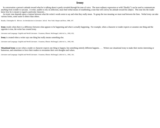
This site contains four different definitions of irony.
- Subject:
- Arts
- English Language Arts
- Material Type:
- Reading
- Date Added:
- 12/01/2023

This site contains four different definitions of irony.
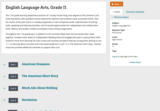
The 11th grade learning experience consists of 7 mostly month-long units aligned to the Common Core State Standards, with available course material for teachers and students easily accessible online. Over the course of the year there is a steady progression in text complexity levels, sophistication of writing tasks, speaking and listening activities, and increased opportunities for independent and collaborative work. Rubrics and student models accompany many writing assignments.Throughout the 11th grade year, in addition to the Common Read texts that the whole class reads together, students each select an Independent Reading book and engage with peers in group Book Talks. Students move from learning the class rituals and routines and genre features of argument writing in Unit 11.1 to learning about narrative and informational genres in Unit 11.2: The American Short Story. Teacher resources provide additional materials to support each unit.

People often say that mankind should learn from history. Charles Dickens, whose books are considered classics, set his novel A Tale of Two Cities in the past. He wanted his readers to learn from the bloody French Revolution and from the widespread brutality in London. Both cities (Paris and London) offer the reader a glimpse into dark and dangerous times. As students read about Dickens's Victorian setting and learn his view of the French Revolution, they will think about what makes a just world. Students will have a chance to think about their own experiences, and, using techniques they have learned from Charles Dickens, they will do some writing that sends a message about your own world.
ACCOMPLISHMENTS
To complete the unit accomplishments, students will:
Read the Charles Dickens novel A Tale of Two Cities.
Read several short pieces, including a biography of Dickens and excerpts from other literature, to help them understand Dickens’s world and the world of the novel.
Explore new vocabulary to build their ability to write and speak using academic language.
Practice close reading and participate in several role plays and dramatic readings to help them experience the dramatic writing style of Charles Dickens.
Write a vignette and a short narrative piece, and practice using descriptive detail and precise language.
Write a reflection about the meaning of Dickens’s novel.
GUIDING QUESTIONS
These questions are a guide to stimulate thinking, discussion, and writing on the themes and ideas in the unit. For complete and thoughtful answers and for meaningful discussions, students must use evidence based on careful reading of the texts.
How does good storytelling affect the reader, and how can a good story promote change in the world?
What was the Victorian view of gender roles?
How can power be abused?
What is loyalty ? What are the limits of loyalty?
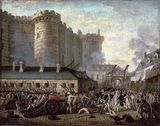
In this lesson, students will review the storming of the Bastille and the actions of the Revolutionaries in these chapters, paying particular attention to the ways in which Dickens represents the women who have become rebels.

Contains plans for three lessons that use the popular television show "The Simpsons" to teach about satire and satirical techniques. In addition to objectives and standards, this instructional plan contains links to PDF handouts and sites used in the lessons as well as assessment and reflection activities. RL.11-12.6 Irony/Satire/etc
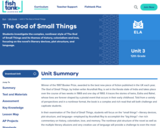
Students investigate the complex, nonlinear style of The God of Small Things and its themes of history, colonialism and love, focusing on the novel's literary devices, plot structure, and language.
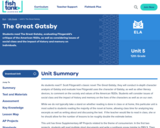
Students read The Great Gatsby, evaluating Fitzgerald's critique of the American 1920s, as well as considering issues of social class and the impact of history and memory on individuals.

A list of figures of speech and their definitions with examples from literature.
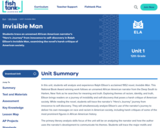
Students trace an unnamed African American narrator's "Hero's Journey" from innocence to self-discovery in Ralph Ellison's Invisible Man, examining the novel's harsh critique of American society.

The goal of this activity is for students to learn how to tell a story in order to make a complex topic (such as global warming or ozone holes) easier for a reader to grasp. Students realize that the narrative impulse underlies even scientific and technical writing and gain a better understanding of the role of myth as a "science" of imagination that helps us to gain insight into human motivation.
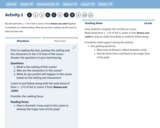
Read lines 1 - 175 of Act V, scene 3 from Romeo and Juliet together to determine how dramatic irony is used to develop the tragic tone of this play?
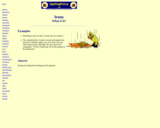
Informational site that provides the definition for and examples of irony.

A simple list of literary terms. Click on each for a definition and examples.

In the final of a three part series on irony, Christopher Warner gets into the irony you may use most often and most casually: verbal irony. [3:29]
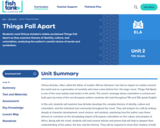
Students read Chinua Achebe's widely acclaimed Things Fall Apart as they examine themes of identity, culture, and colonialism, analyzing the author's careful choice of words and symbolism.